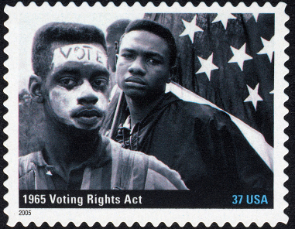Description
The 1965 Voting Rights Act was a landmark piece of legislation in the United States that outlawed discrimination in voting based on race and color. It prohibited states from using literacy tests or other methods to deny voting rights to citizens. The Act was signed into law by President Lyndon B. Johnson on August 6, 1965.
The Voting Rights Act was a culmination of civil rights struggles that had been going on since the end of the Civil War. The 15th Amendment, passed in 1870, had prohibited the states from denying citizens the right to vote based on race. However, despite the Amendment, states in the South continued to use discriminatory policies to prevent African Americans from voting.
In the 1950s, civil rights activists began to press the federal government to intervene. Martin Luther King Jr. and other civil rights leaders organized sit-ins, marches, and other protests to demand the right to vote. In the face of the protests, President Johnson proposed the Voting Rights Act.
The 1965 Voting Rights Act abolished literacy tests and other requirements that had been used to deny African Americans the right to vote. It also authorized the federal government to monitor elections and intervene if discriminatory practices were used.
The 1965 Voting Rights Act has had a major influence on American society. It helped to ensure that all citizens have the right to vote, regardless of race or color. It has also been used as a tool to challenge other forms of discrimination, such as gerrymandering and voter suppression. The Voting Rights Act is a reminder of the progress the United States has made in ensuring civil rights for all citizens.





Reviews
There are no reviews yet.